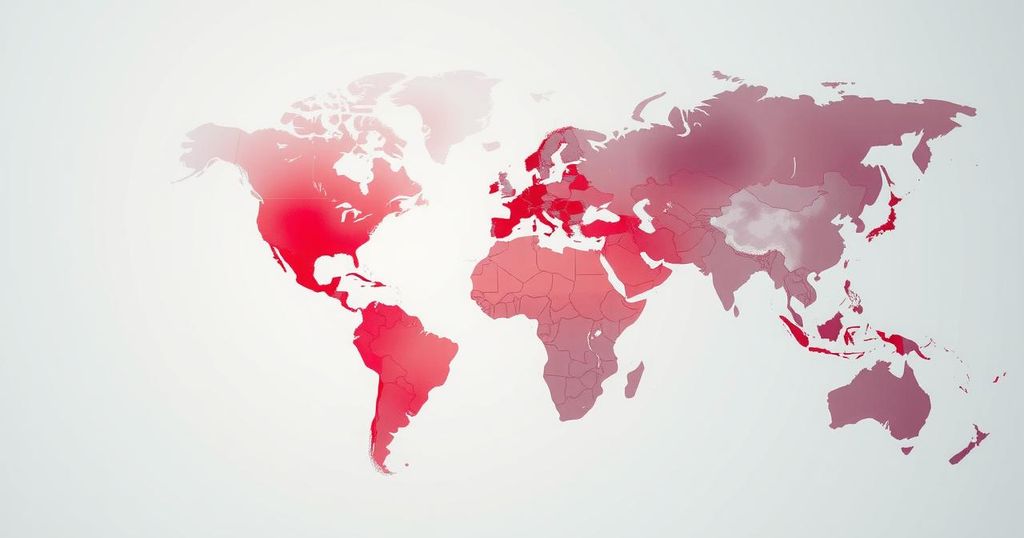Trump’s Suggestion for Palestinian Resettlement Faces International Rejection

Donald Trump’s proposal for Egypt and Jordan to accept Palestinian refugees from Gaza faced significant rejection from both countries. Amid ongoing conflict in Gaza due to Hamas’s actions, there has been a notable return of displaced Palestinians to their homes, challenging the idea of mass resettlement. U.S. and European officials echoed similar concerns, emphasizing the need for a political resolution to the Palestinian crisis.
Former President Donald Trump’s proposal for Egypt and Jordan to accommodate Palestinian refugees from Gaza has met with strong disapproval and confusion from both countries’ governments and allies in the U.S. As fighting continues in Gaza following Hamas’ attack on Israel, Trump suggested relocating around 1.5 million people from Gaza in a recent statement, claiming it would “clean out that whole thing.” He communicated his ideas to Jordan’s King Abdullah and Egypt’s President Abdel Fattah el-Sissi.
The idea of resettlement gained further complexity as recent agreements allowed hundreds of thousands of displaced Palestinians to return to their homes in northern Gaza, indicating a collective determination to remain. Hamas spokesperson Abdul Latif al-Qanou asserted that these returnees represented a failure in Israeli objectives and defied the notion of displacement, emphasizing the significance of Palestinian steadfastness.
Notably, both Egypt and Jordan are concerned about the ramifications of such a massive influx of refugees, fearing it would instigate destabilization within their own countries amidst already struggling economies. Jordan’s Foreign Minister, Ayman Safadi, firmly rejected Trump’s suggestions, while Egypt’s Foreign Ministry warned that transferring Palestinians could exacerbate regional conflicts. They both affirmed their support for Palestinians remaining on their land.
Responses in Europe echoed similar sentiments, with Germany’s Foreign Ministry articulately opposing any mass displacement of Palestinians, reaffirming the collective stance of the EU and Arab partners. Conversely, Italian Prime Minister Giorgia Meloni acknowledged the need for international cooperation on Gaza’s reconstruction but downplayed the definitiveness of Trump’s refugee proposal.
In the U.S., even Republican allies of Trump expressed confusion over his remarks. Senator Lindsey Graham, a close associate of Trump, deemed the logistics of such displacement impractical. He advocated that Trump engage with Middle Eastern leaders for more feasible solutions to the Palestinian crisis.
In addition to his controversial proposal, Trump also announced the release of a supply of 2,000-pound bombs to Israel, highlighting his unwavering support for the country. With both Egypt and Jordan advocating for a Palestinian state, they remain cautious of any actions that may threaten the two-state solution, viewing Trump’s suggestions as potentially detrimental to peace efforts in the region.
In summary, Donald Trump’s suggestion for Egypt and Jordan to absorb Palestinian refugees from Gaza has been met with rejection from regional leaders and uncertainty among U.S. officials. The situation in Gaza remains complex, with ongoing returns of displaced Palestinians highlighting their determination to stay. Egypt and Jordan fear the implications of mass resettlement, emphasizing the necessity of a resolute approach to the Palestinian question that honors their rights and aspirations. Consequently, discussions in both the Middle East and the U.S. continue to revolve around viable solutions rather than displacement.
Original Source: www.cbsnews.com








